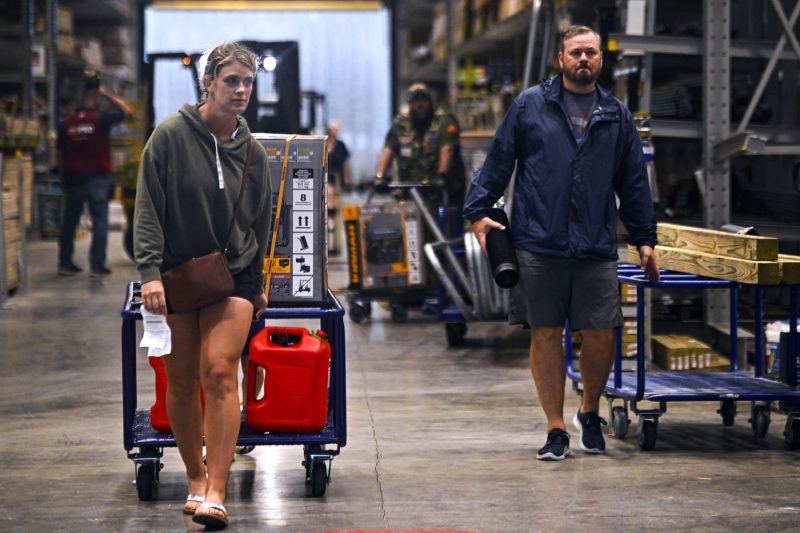In a recent joint effort, the Department of Justice (DOJ) and the Federal Trade Commission (FTC) have issued a warning to consumers regarding the heightened risks of fraud and price gouging in the aftermath of Hurricane Milton. As natural disasters often bring out both the best and worst in people, it is crucial for individuals to be vigilant and aware of potential scams and unfair business practices that may arise during such times of crisis.
The aftermath of a hurricane can be chaotic, with essential goods and services in high demand. Unfortunately, this increased demand also creates opportunities for unscrupulous individuals and businesses to take advantage of vulnerable consumers. Price gouging, a practice in which prices are unfairly raised on essential goods and services, is a common issue in the wake of natural disasters. It not only exploits those in need but also undermines the sense of community and solidarity that is essential during times of crisis.
The DOJ and FTC warn consumers to be cautious when making purchases in the aftermath of Hurricane Milton. They advise individuals to be wary of significantly inflated prices on essential items such as food, water, shelter, and medical supplies. Consumers are encouraged to report any instances of price gouging to the authorities so that swift action can be taken to prevent further exploitation of vulnerable individuals.
Moreover, in addition to price gouging, consumers should also be on the lookout for fraudulent schemes that may target them during times of crisis. Scammers often take advantage of the confusion and distress that follow a natural disaster to trick individuals into providing personal information or money under false pretenses. These fraudulent schemes can take various forms, such as fake charities soliciting donations or phony contractors offering repair services.
To protect themselves from fraud, consumers are advised to verify the legitimacy of businesses and organizations before providing any personal information or making payments. It is essential to research companies, charities, and individuals offering goods or services to ensure that they are reputable and trustworthy. Additionally, consumers should be cautious of unsolicited communications, especially those requesting sensitive information or immediate payment.
In conclusion, the joint warning issued by the DOJ and FTC serves as a reminder to consumers to remain vigilant and informed during times of crisis. By being aware of the risks of fraud and price gouging, individuals can protect themselves and their communities from exploitation. Reporting any suspicious activities to the authorities is crucial in combating unethical practices and ensuring a fair and safe environment for all. Together, we can navigate the challenges of post-disaster recovery with integrity and resilience.

